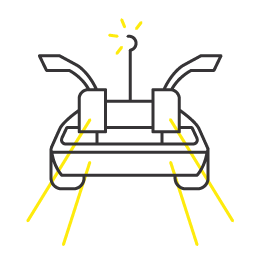I doubt there are many people in the world who wouldn’t like to understand their options when it comes to work, their job and earning money. Whether someone likes to have a clear path or just an idea of their options, most still like to understand how they fit and where they might be able to go in your organisation.
your plan + journey
As business owners, we usually start the journey or inception of our business with a plan or goal of some description. This could be as simple as: ‘I want to work for myself and have the flexibility and autonomy that comes with owning my own business’, ‘I want to turnover $5 million in 5 years’ or ‘I want my product to be sold internationally’. While some of us are more detailed and have a business plan that is mapped out in detail.
When you start to employ people, you are on some level, sharing this plan and this journey with them. Depending on the employee and their outlook on planning, they may be okay with you saying “Follow me, we’ll be turning over $5 million in 5 years and there will be loads of opportunity along the way!” Whereas other people will need a more structured approach.
career and performance check-ins
When I do career and performance check-ins with employees, the following comments or questions are often shared:
- ‘I love my role but I don’t know what it looks like a year from now’
- ‘How do I earn more money?’
- ‘I would like to develop my skills but I don’t know how or what?’
- ‘I would like to be a manager one day’, and
- ‘I have personal goals I want to achieve in the next 5 years.’
Some of the factors that affect answering many of these questions from a leader’s perspective are:
- As a new or growing business, you may not know what the business will look like in the future. Therefore, you may not think you are able to articulate or map things out. If you have a clear and detailed business plan, you may be able to map out paths for people.
- Your own personality and leadership style. You may fly by the seat of your pants and think high level, with a ‘everything will work out’ approach and not take the time to understand the personal motivations of an employee.
- An absence of position descriptions across the business.
- No business plan.
- An absence of communication around the overall goals/values of the business, so that employees can at least picture their future within the business.
why communication is important
You may be pleasantly surprised to know that the majority of the employee population is pretty similar! They like certainty, boundaries and guidance. Whether this is big picture or more detail, employees will thrive on knowing the lay of the land.
Communicating the plans you have for the business is a crucial step in the career planning process. This often needs to be further out than the next 12 months, even if it’s just high level. This enables the employee to see whether there are long-term career opportunities with your business.
the reality of having employees
Not every employee has plans to work with your business for their entire career. It’s a shame, but also a reality. These days, it is very unlikely an employee will stay with the same company or in the same role for a long period of time. However, this largely depends on where they currently are in their career, what motivates them, and if the business can provide the stepping stones to help them achieve their goals.
The only way to find out which camp your employees are in, is to ask the right questions and then provide the solutions to support their plans.
If you are like businessDEPOT and have regular conversations with your team about their performance, you can easily add in some career questions. Perhaps, when you map out goals for the year, you could also ask the employee to share personal or professional long-term goals.
A long-term goal such as ‘I want to own my own business one day’ can tell you a lot about where this person is heading. Obviously, try to avoid making rash decisions based on that comment but instead, ask more questions and be inquisitive to better understand what they mean. By having discussions like this, you may discover a future leader for your business, a skill or interest you could nurture, or an opportunity to fill a gap somewhere else in your business.
3 step process to career planning with your employees
I’ve put together a simple 3 step process to career planning with your employees. The most important part of this process is the conversation, regardless of the plan or the actions. Discussing these things with your employees on a regular basis is worth their weight in gold.
we’re here to help
If you would like help mapping out a more structured approach to performance conversations or career planning, you can give our People + Culture team a buzz on 1300BDEPOT or get in touch at oneplace@businessdepot.com.au.



















































